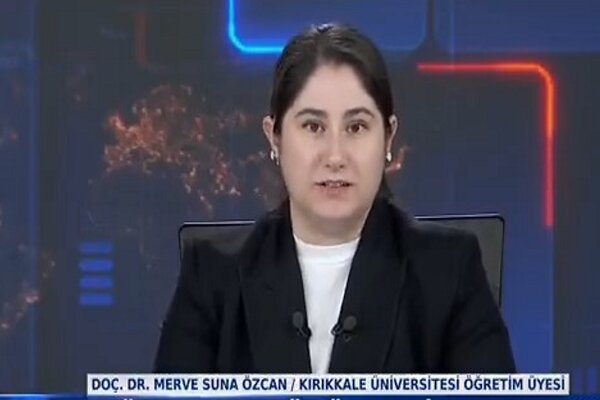Withdrawing from the NPT Won’t Nullify Sanctions; Focus Needed on Eurasia Region

Mehr News Agency, International Desk – Azar Mahdavan: On Thursday morning, August 28, the European Troika (Germany, France, and the UK), also known as the three European members of the JCPOA, officially submitted a “notification” to activate the snapback mechanism for reinstating anti-Iranian sanctions to the UN Security Council. Despite their history of noncompliance and cooperation with their American ally, they stated conditions under which they are ready to negotiate with Iran within 30 days about a nuclear deal that could prevent sanctions from being reimposed.
The proclamation of triggering snapback-or automatic reinstatement of sanctions-is legally questionable but was naturally welcomed by the United States. Following this move, rumors have emerged about Iran possibly withdrawing from the Nuclear Non-Proliferation Treaty (NPT).
dr. Merwe Suna, professor of international relations at Kırıkkale University in Turkey, referred to Europe’s renewed push for snapback and explained it would impose stricter UN Security Council Resolution 2231 sanctions on Iran. Thes include multiple economic and military restrictions. The decision by E3 countries stems from negotiations France, britain, and Germany have conducted with Iran-negotiations that need more focus on military nuclear progress concerns and mutual trust rather than solely energy issues.
The professor continued: after reporting this situation to the UN Security Council on August 28, several requests were made to Iran-such as granting access to UN inspectors and IAEA officials regarding nuclear activities-and resuming suspended talks with Washington. These demands are key factors in preventing snapback implementation.
She added that if activated, snapback cannot be vetoed-similar to previously imposed UN Security Council sanctions against North Korea under international law. It is useful to recall North Korea’s withdrawal from NPT between 1990-2003; yet this did not prevent enforcement of existing UNSC sanction regimes against Pyongyang.
The Turkish expert emphasized that current expectations for Iran include disclosing its high-enriched uranium stockpile-if such material exists as claimed-and continuing engagement with Western nations. She recalled how Iranian nuclear facilities were attacked during a twelve-day conflict by U.S forces just before negotiations over Tehran’s nuclear program resumed between both sides.
Suna addressed implications if Iran leaves NPT: “Withdrawal does not meen complete disengagement or lack of commitment on all nuclear matters.” It does not negate Tehran’s accession since 1968 nor remove oversight; future discussions about Iranian nuclear development should proceed within NPT frameworks focusing on civilian research.
The professor highlighted mediation efforts involving Eurasian players: escalating enrichment beyond three percent uranium produces significant challenges requiring negotiation processes including both Western states and Eurasian actors alike.
She noted past attempts-for example in 2010 under Tehran agreements involving Brazil and Turkey-that sought integration between Iran and Western countries regarding its nuclear program.However,these efforts yielded no conclusive agreements due partly to negative Western responses so far. Reviving such multilateral forums might reduce tensions around Iran’s atomic dossier while mitigating harsh impacts of imposed sanctions through diplomatic means.
Full video interview with Persian subtitles


